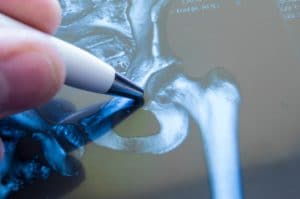Metal Hip and Knee Replacements Pose Risks Patients’ Health
 The purpose of knee and hip replacements is to help the patient achieve a better quality of life with less pain and greater mobility. However, too often defective medical implants fail much earlier than they should, creating the need for additional surgery to correct the problem. This can lead to health uncertainty going forward as well as additional medical costs.
The purpose of knee and hip replacements is to help the patient achieve a better quality of life with less pain and greater mobility. However, too often defective medical implants fail much earlier than they should, creating the need for additional surgery to correct the problem. This can lead to health uncertainty going forward as well as additional medical costs.
Metal hip implants
U.S. doctors perform more than 300,000 hip replacement surgeries each year, according to the Agency for Healthcare Research and Quality. It is a common procedure, particularly in patients over the age of 50. Medical device manufacturers have improved the design of hip replacements in recent years with the development of metal on metal hip replacement devices that have replaced previously used ceramic and plastic implants.
Unfortunately, reports of complications resulting from metal hip replacements have developed and persisted since their introduction to the market. Some of the common problems and side effects associated with these hip implants include:
- Cobalt Toxicity: The purpose of including cobalt in hip implants is to extend their service life. However, if the hip implant begins to fail, metal particles can enter the body leading to cobalt toxicity. The symptoms of cobalt poisoning can include heart failure, inflammation, organ damage, hearing damage, loss of vision, fever, and low thyroid levels.
- Implant Failure: Hip implants, due to their function, undergo a significant amount of friction. This has forced many patients to have their metal hip implants replaced with surgery much sooner than expected.
- Metallosis: This condition occurs when metal particles filter into the body and build up in the bloodstream and body tissue. As a result, pain can develop in the hip joint, including inflammation, swelling, bone loss, numbness, and tissue death – also resulting in reduced mobility.
DePuy hip implant recall
Two of the most popular hip implants on the market, the ASR XL Acetabular System and the ASR Hip Resurfacing System were recalled by their manufacturer, DePuy Orthopedics, in 2010. The company recalled the products after hundreds of complaints were filed that included reports of hip implant failure, requiring patients to undergo painful surgery to solve the problem.
The following symptoms have been reported from using the ASR implant:
- Radiographic alterations such as the dissolution and loosening or destruction of cells
- Acute pain manifested in the implant, groin and/or back area
- Solid or cystic masses around the hip joint
Metal knee replacements
Over the past decade, along with hip replacement surgery, knee replacement surgery has also become more common. Similar to the problems associated with hip implants, certain knee replacement systems have exhibited a rate of failure within a relatively short period of time after surgery that is unacceptable.
- DePuy knee implants: These knee implants have led to extensive product recalls due to particular negative symptoms and failures associated with their use. In particular, certain products have become brittle and susceptible to failure. Several of the warning symptoms experienced beyond the normal recovery period and that indicate failure include:
- Feeling of warmth or heat in the knee
- Instability or loosening
- Persistent pain
- Swelling
- Zimmer NexGen CR-Flex: This femoral, porous implant is not cemented, but rather connected to the lower part of the thigh bone. Patients have experienced pain subsequent to the implantation of these devices with reports of the devices becoming loose and requiring surgeries to correct the issue.
Unfortunately, revision surgery to correct a faulty implant problem can be more difficult and painful for the patient than the initial implant surgery. Any bone loss the patient has suffered from the initial implant failure can also make the situation more problematic.
If you or a loved one has suffered additional health complications and hospital visits due to an initial hip or knee replacement operation, you may have the right to compensation through a medical malpractice claim. Our New Jersey defective medical device attorneys at Eichen Crutchlow Zaslow, LLP have successfully litigating multi-million-dollar medical malpractice lawsuits for clients throughout the state. We are here to fight for you and your rights. To set up a free consultation at one of our convenient law offices in Red Bank, Edison, or Toms River, call us today at 732-777-0100 or complete our contact form.

Eichen Crutchlow Zaslow, LLP has purposely remained small in size, because it is important to us that we get to know our clients and their needs. Larger NJ injury firms may churn out case after case, but that’s not how we operate. Partners Barry Eichen, William Crutchlow, and Daryl Zaslow have created a firm with the resources to handle complex litigation, and a team that takes your case personally.
Find out more about Eichen Crutchlow Zaslow, LLP
